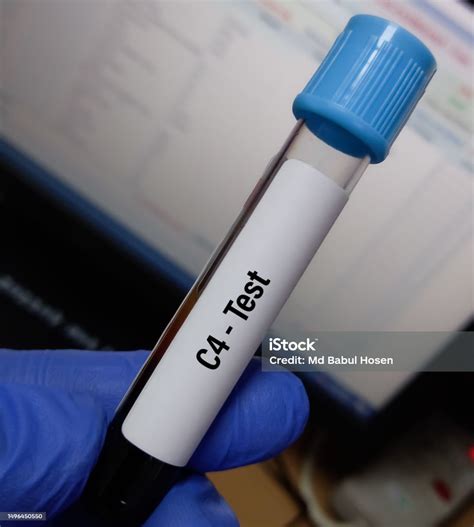C3 C4 Blood Test

The C3 C4 blood test is a medical diagnostic tool used to measure the levels of complement proteins C3 and C4 in the blood. These proteins are part of the immune system and play a crucial role in defending the body against infections and diseases. The test is commonly used to diagnose and monitor various conditions, including autoimmune disorders, infections, and inflammatory diseases.
Understanding Complement Proteins

Complement proteins are a group of proteins that work together to help eliminate pathogens from the body. They are called “complement” because they complement the immune system by enhancing its ability to fight off infections. There are nine main complement proteins, labeled C1 to C9, each with distinct functions. C3 and C4 are two of the most important complement proteins, as they are involved in the activation of the complement system.
C3 and C4 Functions
C3 is the most abundant complement protein in the blood and plays a central role in the complement cascade. It helps to opsonize pathogens, making them more susceptible to phagocytosis, and also contributes to the formation of the membrane attack complex (MAC). C4, on the other hand, is involved in the classical pathway of complement activation and helps to activate C3. Both C3 and C4 are essential for the proper functioning of the immune system.
| Complement Protein | Normal Range |
|---|---|
| C3 | 90-180 mg/dL |
| C4 | 15-45 mg/dL |

Interpretation of C3 C4 Blood Test Results

The results of the C3 C4 blood test are typically interpreted in conjunction with other laboratory tests and clinical findings. Low levels of C3 and C4 can indicate:
- Autoimmune disorders, such as systemic lupus erythematosus (SLE) or rheumatoid arthritis
- Infections, such as bacterial or viral infections
- Inflammatory diseases, such as nephritis or vasculitis
On the other hand, elevated levels of C3 and C4 can indicate:
- Acute phase response, which is a non-specific response to inflammation or infection
- Nephrotic syndrome, a condition characterized by excessive loss of protein in the urine
- Cancer, such as lymphoma or leukemia
Clinical Applications of C3 C4 Blood Test
The C3 C4 blood test has several clinical applications, including:
- Diagnosis of autoimmune disorders, infections, and inflammatory diseases
- Monitoring of disease activity and response to treatment
- Prognosis of certain conditions, such as SLE or rheumatoid arthritis
What is the purpose of the C3 C4 blood test?
+The C3 C4 blood test is used to measure the levels of complement proteins C3 and C4 in the blood, which can help diagnose and monitor various conditions, including autoimmune disorders, infections, and inflammatory diseases.
What are the normal ranges for C3 and C4?
+The normal ranges for C3 and C4 are 90-180 mg/dL and 15-45 mg/dL, respectively.
What do low levels of C3 and C4 indicate?
+Low levels of C3 and C4 can indicate autoimmune disorders, infections, or inflammatory diseases.



